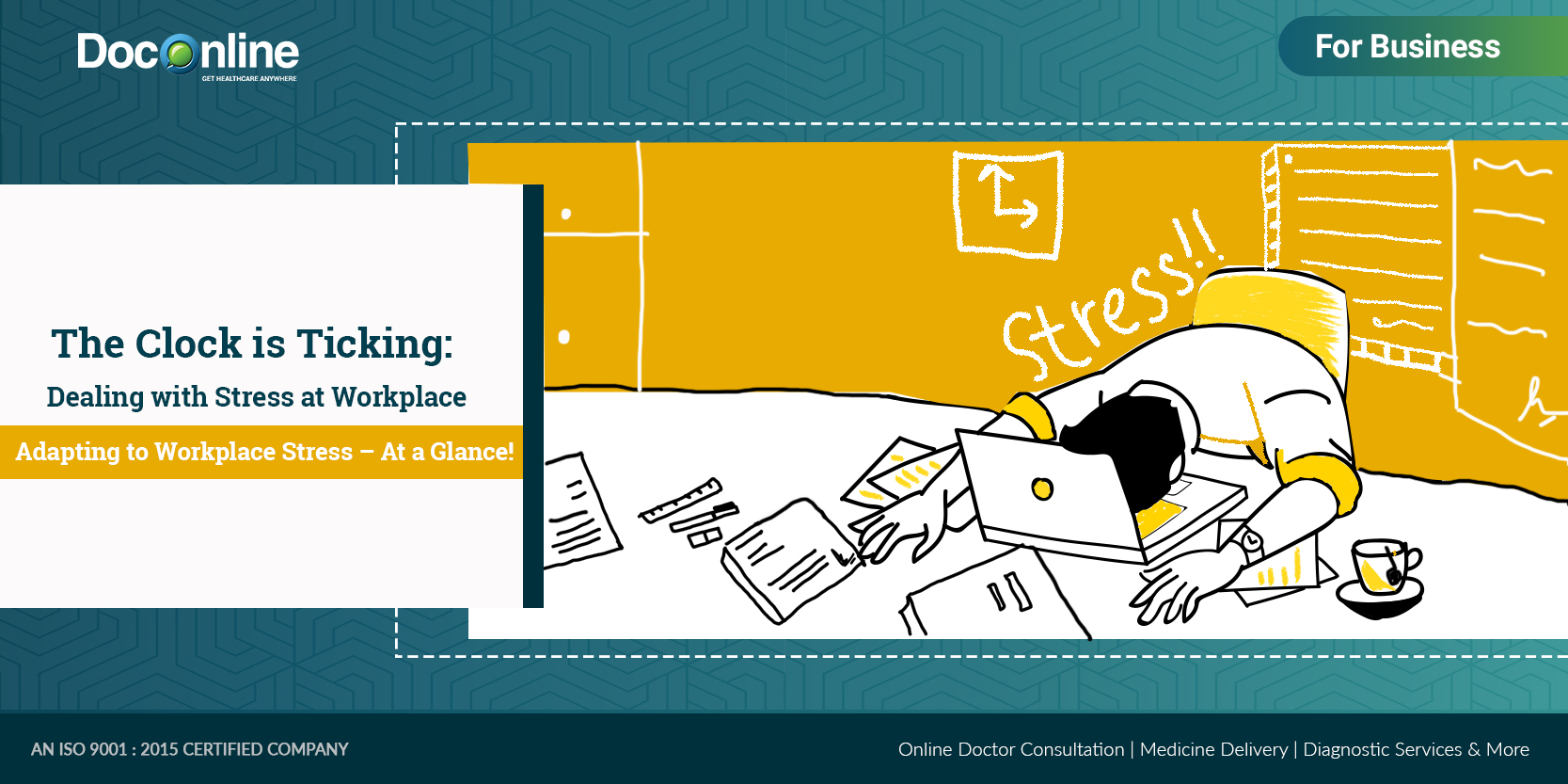How to Adapt to Stress?
“It is not the strongest of the species that survives, nor the most intelligent that survives. It is the one that is most adaptable to change.” – Charles Darwin
More commonly known as the “Survival of the fittest.” The theory of evolution propounds the law of natural selection, which means how well an organism is able to adapt to its surroundings to ensure its continuity. The same law is applicable to present day corporate life.
50% of the leading disabilities in the world are stress-related. Stress is a dynamic factor and many remain unaware of its onset. It is a critical warning signal to the body.
The reasons for stress are aplenty and it is not always easy to avoid them. It is imperative to learn to prevent occupational pressure as much as possible and adapt one’s emotions, body and mind accordingly.
Related: The Clock is Ticking: Dealing with Stress at Workplace (PART 1)
A workplace can be abuzz with several stress inducers. This is further compounded by personal factors and lifestyle choices.
Setting realistic professional and personal goals can help frame the right direction. Changing stressful work-methods or work schedules can also prove beneficial.
Instead of multitasking, more and more people are veering towards chunking, which is relatively less stressful. It helps a person to tackle a single activity at a time and switch to the next task with predefined time allocated for each task.
When under duress, short work breaks, physical movement to a different and more ambient environment as well as workouts can also aid in regaining one’s balance.
For someone who is already under strain, even minor irritants like loud chattering or noise can have a multiplier effect. Listening to music can be a good stress buster.
Interpersonal conflicts can be another major hindrance. Avoiding negative people and not getting into major and loud arguments can help. Brief conversations with supervisors and friends can also provide insights to tackling stress inducers.
Also Read: The Clock is Ticking: Dealing with Stress at Workplace (PART 2)
Drinking sufficient water and eating nutritious food will help mitigate some levels of pressure.
Additionally, timely and qualitative medical consultations should be sought when needed. Preventive healthcare helps to identify the situations, thoughts, symptoms, and behaviour and address them in time. Depending on the characteristics and duration of the stress, professional treatment needs to be customized for an individual.
There are Online Doctor Consultation and Healthcare platforms for employees and their immediate family members through which the organization can facilitate preventive and non-emergency healthcare consultations over a mobile app, video or chat with highly experienced on-call doctors and healthcare providers.
Article by: Kolla Krishna Madhavi













